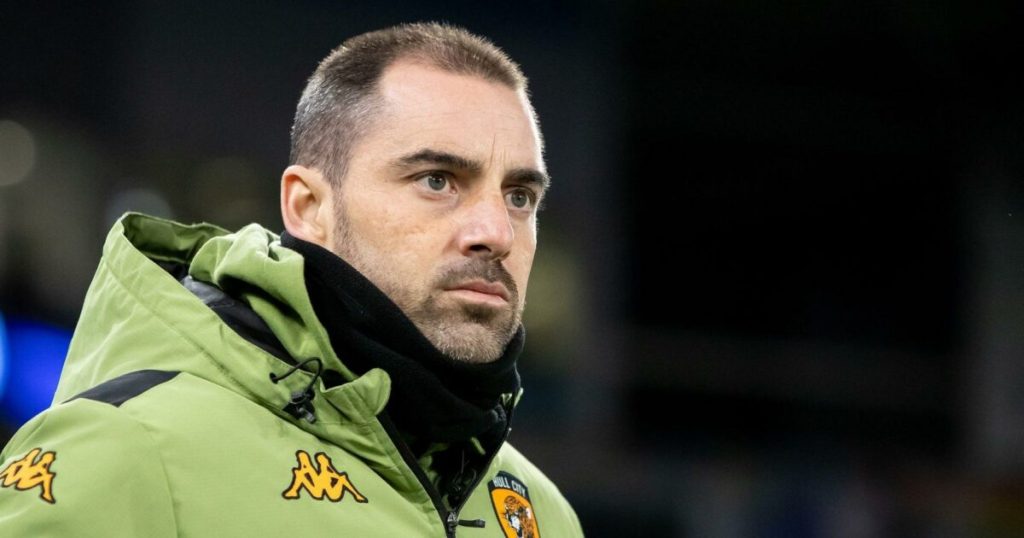Hull City’s decision to dismiss manager Ruben Selles, despite successfully steering the club away from relegation, underscores the volatile and demanding nature of modern football management, particularly in the Championship, English football’s fiercely competitive second tier. Selles’s brief tenure, spanning less than six months, highlights the precarious position of managers, often judged on immediate results and subject to the whims of ownership, even when achieving the primary objective of survival. This dismissal marks the third managerial change orchestrated by Hull City owner Acun Ilicali within the past year, raising questions about the club’s long-term strategy and the stability offered to those tasked with leading the team. The search for a fifth permanent manager in just over two years indicates a persistent lack of continuity at the helm, a factor that can significantly impede a club’s progress and create an environment of uncertainty for players and fans alike.
The official statement released by Hull City cited a “thorough review of football operations” and the need for “a change in leadership” to align with the club’s ambitions as the rationale behind Selles’s departure. While the club avoided the catastrophic drop to League One, the narrow escape, secured only on goal difference on the final day of the season, suggests a deeper malaise within the team. The statement alludes to a desire for more than mere survival, hinting at ambitions that extend beyond simply retaining Championship status. This ambition, however, appears to be at odds with the frequent managerial changes, as building a successful team often requires stability and a consistent vision, both of which have been lacking at Hull City during Ilicali’s ownership. The rapid turnover of managers suggests a reactive approach to team management, where short-term results take precedence over long-term planning and development.
Selles inherited a team languishing at the bottom of the Championship table in December, a situation that underscored the challenges he faced from the outset. Despite the difficult circumstances, he managed to galvanize the squad and secure enough points to avoid relegation, a testament to his managerial abilities. His record of nine wins in 27 league games, while not spectacular, represents a respectable achievement given the precarious position he inherited. The fact that this achievement was deemed insufficient to secure his future at the club speaks volumes about the pressures and expectations placed upon managers in the modern game, particularly those operating in the intensely competitive environment of the Championship.
The Championship is renowned for its demanding schedule and the high turnover of managers. The league’s unforgiving nature, coupled with the financial implications of relegation, creates a pressure-cooker environment where even achieving the primary objective of survival may not be enough to guarantee a manager’s job security. The constant threat of relegation and the lure of promotion to the Premier League, the world’s most lucrative domestic football competition, create an environment where owners are often quick to make changes in the pursuit of immediate results. This short-term focus can be detrimental to long-term development and stability, as evidenced by Hull City’s repeated managerial changes.
Acun Ilicali’s ownership has been marked by significant investment and a stated ambition to return Hull City to the Premier League. However, his frequent changes in managerial personnel suggest a certain impatience and a tendency to seek quick fixes rather than embracing a long-term strategy. While the desire for success is understandable, the constant upheaval in the managerial position can create instability within the squad and undermine the club’s ability to build a cohesive and competitive team. The lack of continuity in leadership makes it difficult for players to adapt to different playing styles and philosophies, hindering the development of a consistent team identity.
The search for a new manager at Hull City will undoubtedly attract considerable attention, given the club’s recent history and the stated ambition of the owner. The challenge for the new appointee will be to navigate the demanding landscape of the Championship and build a team capable of competing for promotion. However, the new manager will also need to be given the time and support necessary to implement their vision and build a sustainable foundation for success. Whether Ilicali will afford the new manager the necessary patience and stability remains to be seen, but the club’s recent history suggests that the next manager will face immense pressure to deliver immediate results. The long-term success of Hull City hinges on finding a manager who can not only achieve results on the pitch but also foster a culture of stability and long-term development within the club.


